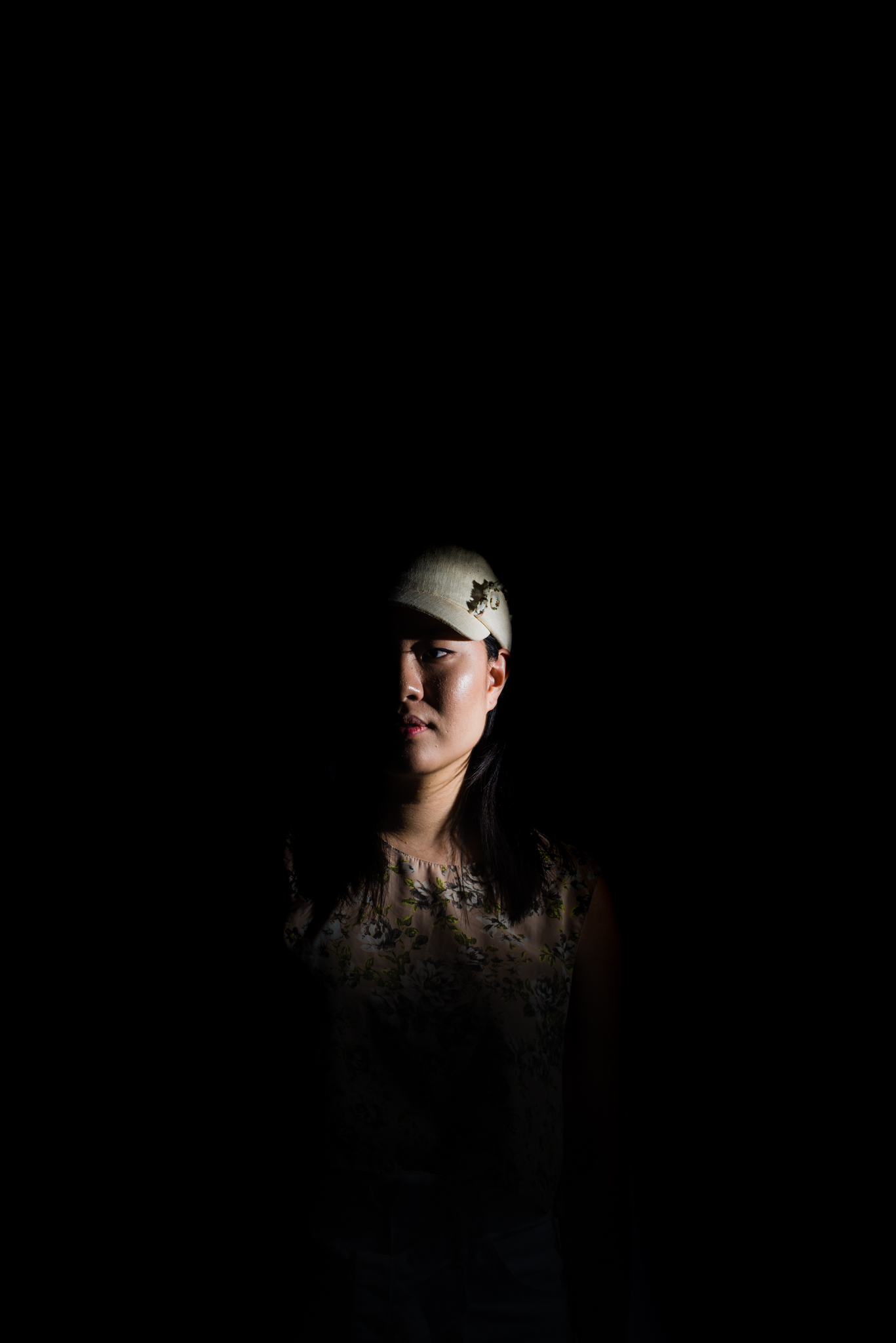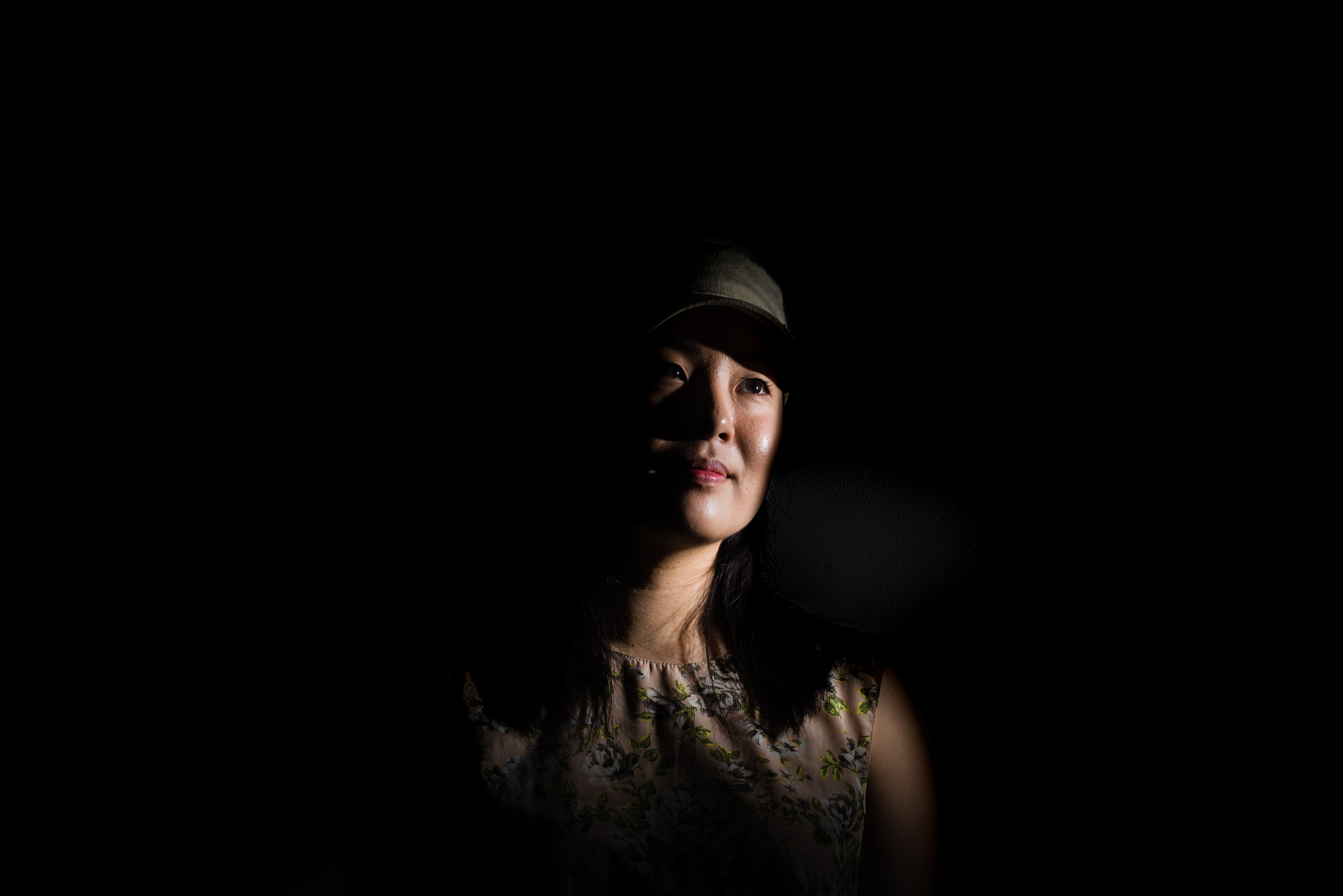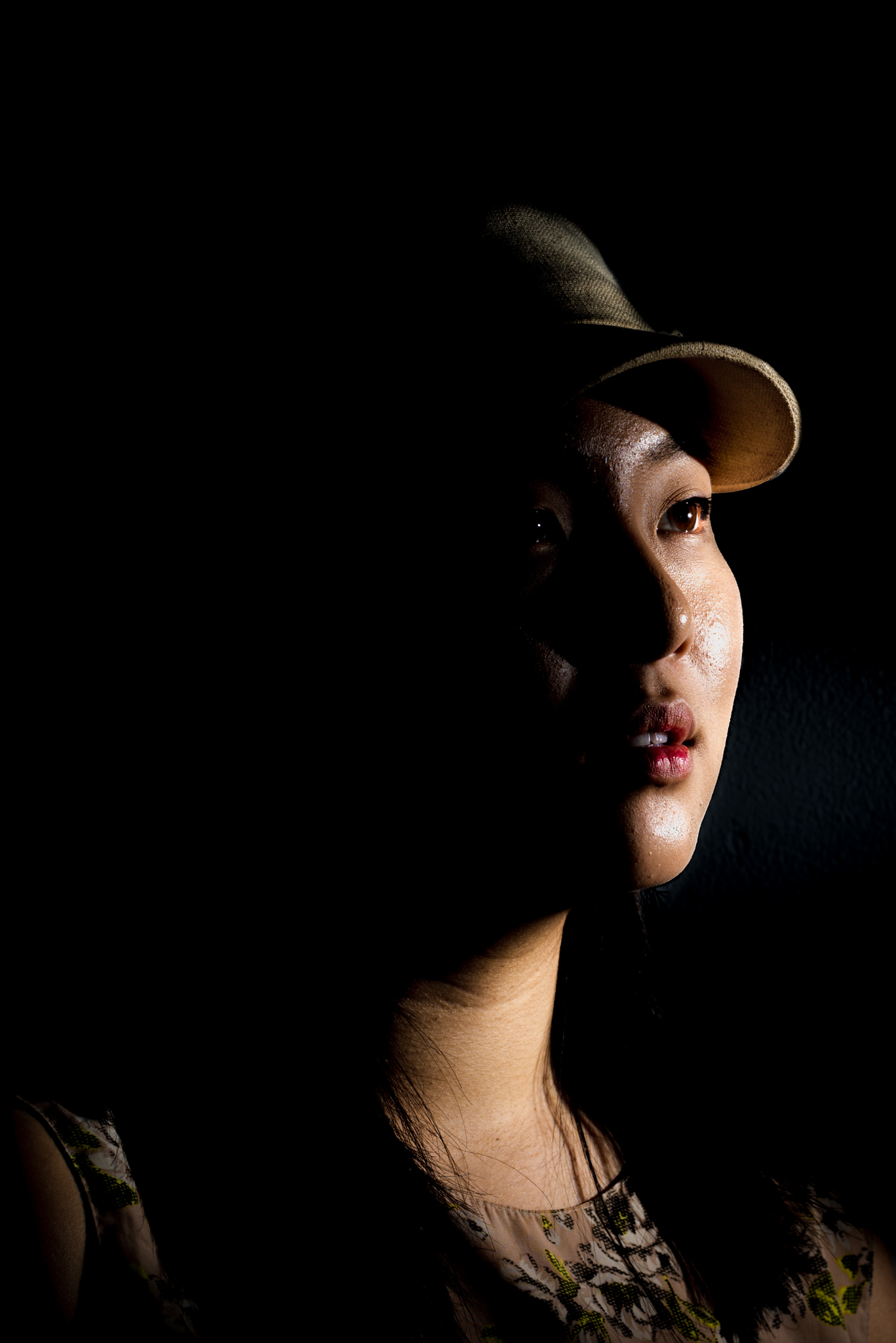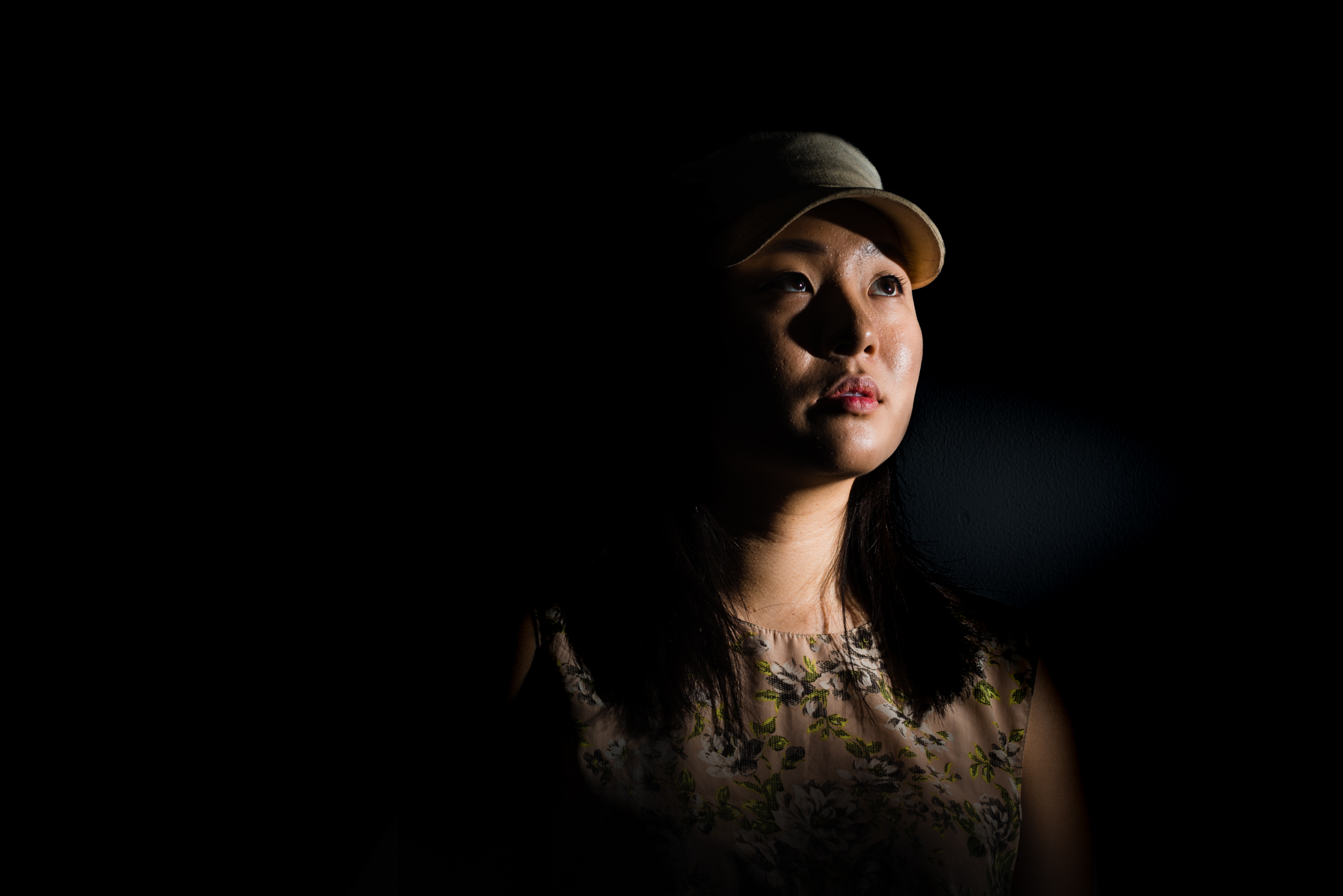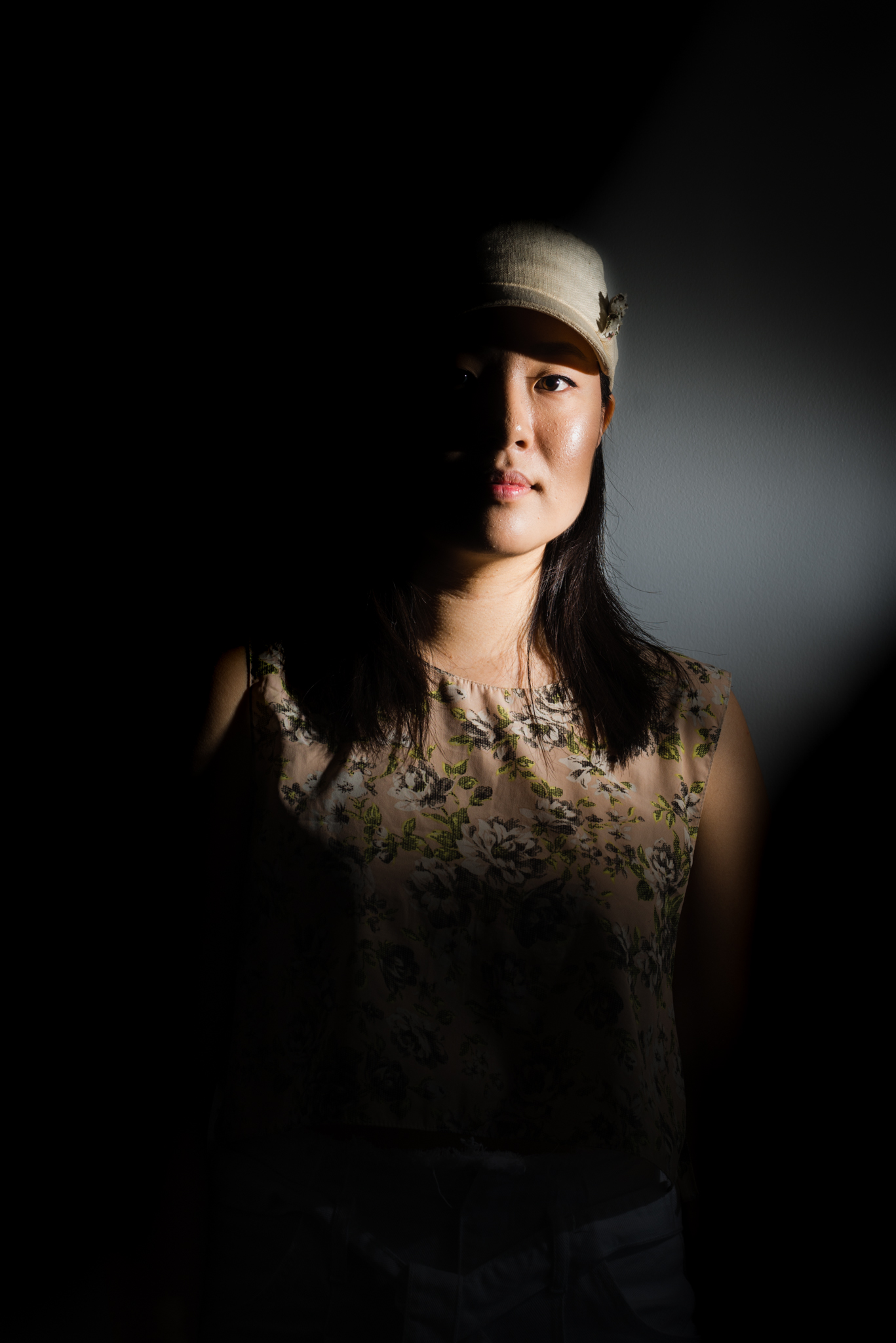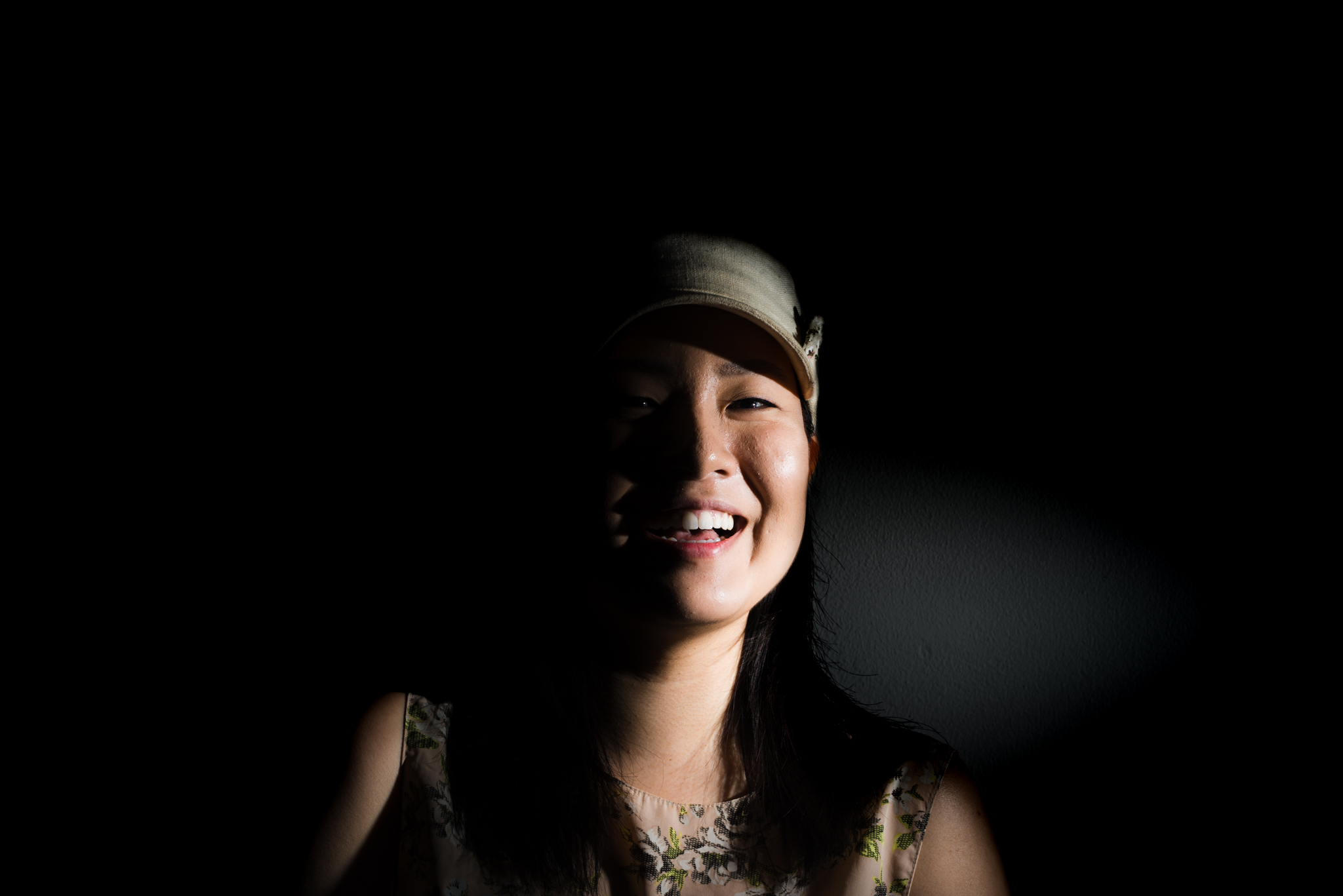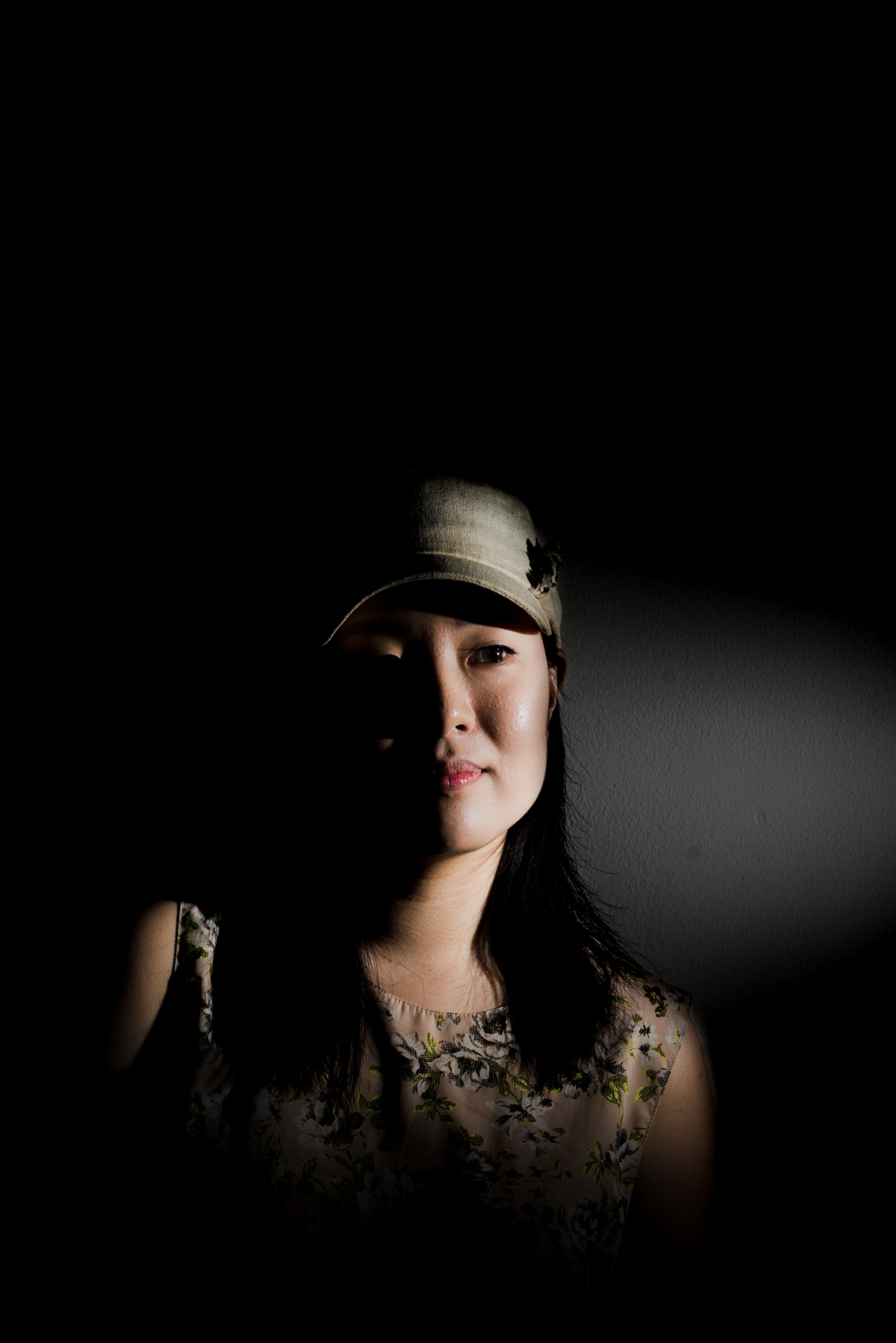The Other Side: Yenny Shim
I met Yenny my last year of college, but really got to know her better as we both lived in NYC since graduating. She is not only one of the most talented designers/artists I know, but is one of the easiest people to talk to. I'm extremely thrilled to share with you the conversation that we had the other day which is full of insight and honesty. Be sure to check out her work on http://www.yennyshim.com/
Thanks Yenny for this awesome Gif!
“So for women, there’s both a societal conditioning as well as also not having been given as many opportunities. It’s at least providing the exposure [for women].”
Yenny Shim is a multidisciplinary designer in New York.
On Going Into Design As a Career
I define myself mostly through what I do, design. I'm Korean-American, born and raised in Jersey, went to school in upstate New York. [Design] just fell on me. I always grew up doing art. I started painting and followed along because my sister Rachel had been doing that. I knew from an early age that I didn't want to do fine arts because I didn't have the patience to complete a piece of art and knew I wanted something more technical and more concrete, less abstract. So that's why design ended up being a very good fit.
My parents were very supportive of both my sister and I pursuing creative fields. Its partially because my dad really enjoyed doing art growing up, but his father didn't let him do it saying, "It's not a real career" so that's probably why he was encouraging us to do it. We grew up going to museums every weekend. The only negative attribute I felt was the social and public stigma of my peers saying, "Oh you're going to pursue a college degree in that? How are you going to make money and support yourself?" But that's just a global stigma.
On Being a Woman in Design
[I've felt disadvantaged as a woman] when studying industrial design where the majority were guys. A lot of the work is technical and physical so I felt like I had to prove myself and go above and beyond what other people where doing to at least get to the same level of being accepted or being taken seriously for my ideas and work.
With design at least, I've always found myself cringing whenever people describe projects like "make it look sexy" or "make this UI look sexy." What does that even mean? You're talking about making a digital interface look sexy? Yet everybody knows what is meant by that; the money shot, the glamor shot. Along with that, my one question at the end of every documentary or lecture are "where were the women?" They weren't even showcased.
It really filters down to every industry, not just industrial design. The founders of these businesses and these fields have been men because men have had more privilege in the past than [women] have. It goes all the way back to the playground. I was listening to a podcast about how bravery is not a gendered trait, but a lot of times people assume it is. For example when boys are going down the fire pole parents just let them do their thing, if they fall or get hurt, they're boys and will pick themselves up. Whereas with girls, parents tend to linger and hover, ready to catch them in case. Even if girls want to go down by themselves their parents end up walking them through it. So for women, there's both a societal conditioning as well as also not having been given as many opportunities. It's at least providing the exposure [for women].
“You feel this pull of wanting to be the more American version of that person, trying to fit in. It’s not until you are older and meet other people or feel more confident in your culture that you realize how valuable it is.”
On Growing Up Korean-American
I grew up in Wayne a suburb in New Jersey fairly close to [New York City]. My town was predominantly Italian-American or Jewish. I definitely felt like I stuck out. In certain social situations, everything was at a bit of a disadvantage. Something as simple as in 4th grade art class everybody had to bring in their family crest and I didn't have that. So I made one up with flowers and something silly. I continuously felt like my home life was very different compared to everyone else's. I think for most second generation kids, you deal with that and internalize it because you're not sure how you're supposed to react or feel about it. So it all feels kind of strange. Your parents don't know either because it's a first for them too. It's so different from how they grew up.
In Wayne, even though there wasn't a massive Korean-American population, there was one of the largest Korean churches in America. Which is what makes a lot of people move there because of that community. But my family wasn't part of that community, and I was the only Korean kid in my school that wasn't going to church every Sunday. So I felt even more ostracized in a way. I think I had a different definition of what it meant to be Korean-American growing up for sure. You feel this pull of wanting to be the more American version of that person, trying to fit in. It's not until you are older and meet other people or feel more confident in your culture that you realize how valuable it is.
“Nobody is just the way they appear to be.”
On Her Name
My name is actually interesting because Yenny isn't Korean and it isn't American, it's kind of made up. It's right in the middle. My actual Korean name is Ye Hyung and is really difficult for people to pronounce. When I was in preschool my friends started calling me Yenny to shorten it. It just stuck. All through my life it's just been Yenny. I got it legally changed in second grade. My parents said, "If you wanted to change your name to something more American you can." But then I wasn't even going to know who I am! I'm having a legitimate identity crisis at 7 years old!
Though I wonder if that's helping me or hindering me during interviews because you can't really show them who you are personally or that you're limited in doing so. What they see is what you're being judged on. Even with submitting my name, obviously it's not a hundred percent American. I'm not sure if it helps or hurts me. It's not the fact that I have to figure out what to put down, it's the fact that I even have to think about it at all. Whereas you know that anyone else would just say, "that's my name, it's not going to affect me in anyway."
“The challenge is that you have to constantly defend yourself. We always have to try twice as hard because we don’t have opportunities that are given as a default.”
On Being A Second Generation Asian-American
For most second generation people you're divided in trying to maintain the heritage and culture versus trying to fit in to American culture. In our generation it was trying to prove that you are American and avoiding microaggressions such as "you don't have an accent." Or if you say something like "I don't like blue cheese" people would respond, "It's because you're not American." That was nothing, but something about that was kind of biting.
Based on initial appearance, the way I dress, look, my Asian features, people might think that I'm more feminine, soft spoken, and shy. These are such surface-level misconceptions. That may be part of me, but that's not all of me. Nobody is just the way they appear to be.
The challenge is that you have to constantly defend yourself. We always have to try twice as hard because we don't have opportunities that are given as a default. It's feeling like we are at a slight disadvantage, acknowledging that, being aware, and figuring out how you can work harder and do better. It's out of your control, you acknowledge it, and you push past that.
[As a child] I had friends come over for playdates and I'd be like "hide the Kimchi!" I felt ashamed even though I shouldn't, and I'm sure our parents felt that way too from us. It's cause kids are so damn judgmental. As a child going through that, we didn't have the mental capability to be that aware and balance it all. Now, rather than trying to fit in to one or the other we're forging a new path. When we have kids it's going to be completely different with the pull. It'll be a struggle to maintain our Asian heritage.
“And I think we should all give [different issues] the same consideration that we do for the issues that affect us daily. That’s so difficult to do, but we’re getting better at it. ”
On Being an Advocate
As an Asian-American woman, I will say I do feel very privileged growing up on the East coast and living and working in New York City. I rarely ever feel out of place for my race. One of my friends is Muslim and I can't imagine trying to put myself in her shoes right now with the political climate. I hear my parents talking about what's going on in the world and them feeling pain and anger, but when I think about what it must be like for her and her family it's completely different. I can't even fathom. For any movement and minority group, you saw how charged people were for the Women's March, it was a party on the streets. But when it was the first International Muslim's Day, where was everybody? I think some people think, "I'm not Muslim I don't know if it's ok if I post something about it." It's still important that we make that step to say, "I care about this, I'm aware about this." And I think we should all give [different issues] the same consideration that we do for the issues that affect us daily. That's so difficult to do, but we're getting better at it.
To help visualize, in NYC you see homeless people on a day to day basis. I feel like often times I don't know how to react in those situations. Yes money will help, but at the end of the day I feel like they just need to be heard and listened to. I feel very ashamed being another stranger trying to avoid eye contact. It feels so abnormal to me that I'm in a car full of strangers ignoring someone walking by asking for help. At times staring and not doing anything. Back in Syracuse there were times if I came across someone and felt like it wouldn't be inappropriate to approach them, I would offer to buy them a drink and also try to have a conversation to get to know them. It lets them know that I see them as a person. [It's telling them] that, "you're not just a homeless person." All that to say, it's similar to how I feel [as a person of color and as a woman.] It's very easy to have a block on and say "I don't see it, I'm not fazed by it." But [we're all] not better than anyone else.
“The best thing we can all do is to shut up and just listen. Everyone has something to say. ”
On Empathy
I have this crippling fear of public speaking, yet one of my dreams is to give a TED talk. The main goal would be to talk about empathy and inspire or encourage people to see how important empathy is. Unfortunately I find that time and time again humans end up becoming empathetic after they've personally gone through something painful. It would be great if we lived in a world where people were just naturally empathetic. I feel like it shouldn't be those negative experiences that make us kinder. It's something I've been thinking about; different ways creatively and socially on how to instill more empathy into community or even a small space among friends.
The best thing we can all do is to shut up and just listen. Everyone has something to say. Somewhere along their story there is going to be chunks of truth that everyone can relate to and understand.







